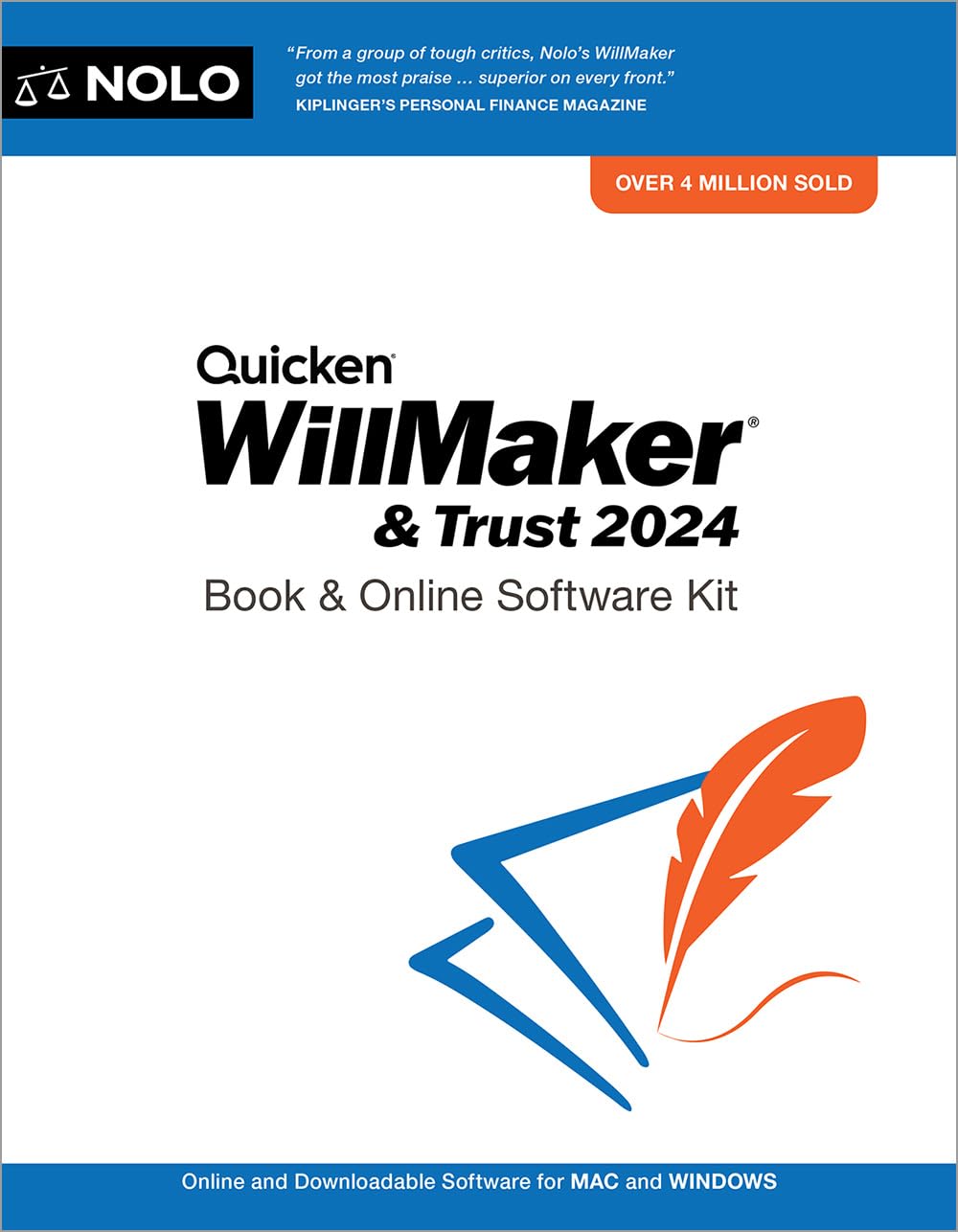If you’re involved in a real estate transaction in New York, there’s a good chance you’ll come across the term “lis pendens.” A lis pendens is a legal document that notifies the public that a lawsuit has been filed against a property. It’s also sometimes referred to as a “notice of pendency.”

In New York, a lis pendens is filed with the county clerk’s office where the property is located. Once filed, the lis pendens becomes a part of the public record and serves as notice to anyone who might be interested in purchasing or financing the property that there is a legal dispute pending. The lis pendens also prevents the property owner from selling or refinancing the property without first resolving the legal dispute.

Do it Yourself Wills and Living Trusts
Quicken WillMaker and Trust is an easy way to create your estate plan.
Lis pendens filings are most commonly associated with real estate litigation, including disputes over ownership, boundary lines, and easements. However, they can also be used in other types of cases, such as divorce proceedings or bankruptcy filings. If you’re considering purchasing a property in New York, it’s important to be aware of any lis pendens filings that may affect the property.
Understanding Lis Pendens

Definition and Purpose
If you are involved in a property transaction in New York, you may have come across the term “lis pendens” or “notice of pendency.” A lis pendens is a legal document filed with the county clerk’s office to give notice that a lawsuit has been filed involving a particular property. This document is also commonly referred to as a notice of pendency.

Do it Yourself Wills and Living Trusts
Quicken WillMaker and Trust is an easy way to create your estate plan.
The purpose of a lis pendens is to provide notice to anyone who may be interested in the property that there is a legal dispute involving it. This notice serves as a warning that any interest in the property may be subject to the outcome of the lawsuit. Essentially, a lis pendens puts the public on notice that the property is “tied up” in a legal proceeding.
Role in Property Transactions
If you are considering buying or selling a property in New York, it is important to be aware of the potential impact of a lis pendens. If a lis pendens has been filed on a property you are interested in, it is crucial to consult with an attorney to understand the implications of the legal dispute and how it may affect your transaction.
If you are selling a property that is subject to a lis pendens, you must disclose this fact to potential buyers. Failure to do so could result in legal liability. Additionally, a lis pendens can make it difficult to sell a property as it may deter potential buyers who do not want to become involved in a legal dispute.
In summary, a lis pendens is a legal document filed in New York to give notice of a pending lawsuit involving a particular property. It serves as a warning to anyone interested in the property that it may be subject to the outcome of the legal dispute. If you are involved in a property transaction in New York, it is important to be aware of the potential impact of a lis pendens and to consult with an attorney if necessary.
Filing a Lis Pendens in New York

If you are involved in a real estate dispute in New York, you may need to file a Lis Pendens. This legal document, also known as a “Notice of Pendency,” is filed with the county clerk’s office where the property is located. A Lis Pendens notifies potential buyers and lenders that there is a pending legal action involving the property.
Statutory Requirements
To file a Lis Pendens in New York, you must meet certain statutory requirements. According to New York Consolidated Laws, Lien Law – LIE § 44, “a notice of lis pendens may be filed with the county clerk of the county where the property affected is situated, in any action in a court of record in which the judgment demanded would affect the title to, or the possession, use or enjoyment of, real property.”
The Lis Pendens must contain specific information, including:
- The names of the parties involved in the legal action
- The nature of the legal action
- The court in which the legal action is pending
- A description of the property affected by the legal action
Process and Procedures
To file a Lis Pendens in New York, you must follow certain procedures. The process begins by preparing the Lis Pendens document, which must be signed by an attorney or a party to the legal action. The document must be filed with the county clerk’s office where the property is located.

Do it Yourself Wills and Living Trusts
Quicken WillMaker and Trust is an easy way to create your estate plan.
Once the Lis Pendens is filed, it becomes a public record, and potential buyers and lenders will be notified of the pending legal action. The Lis Pendens remains in effect until the legal action is resolved or dismissed.
It is important to note that filing a Lis Pendens is a serious matter and should only be done when necessary. If you file a Lis Pendens without proper cause, you may be subject to legal action for slander of title.
In conclusion, filing a Lis Pendens in New York is a legal process that requires careful consideration and adherence to statutory requirements and procedures. If you are involved in a real estate dispute and need to file a Lis Pendens, it is recommended that you seek the advice of an experienced attorney.
Effects of Lis Pendens on Property

If you are involved in a legal dispute concerning real property in New York, you may have heard the term “lis pendens.” A lis pendens, also known as a notice of pendency, is a legal notice filed with the county clerk’s office. It is a public record that indicates that a lawsuit has been filed that may affect the title to or the possession, use, or enjoyment of real property.
Impact on Title and Ownership
A lis pendens can have a significant impact on the title to and ownership of real property. When a lis pendens is filed, it creates a cloud on the title to the property. This means that the property cannot be sold or transferred without resolving the underlying legal dispute. In some cases, a lis pendens can also prevent the property owner from refinancing or obtaining a mortgage on the property.
Dealing with Liens and Encumbrances
If you are considering purchasing real property in New York, it is important to be aware of any lis pendens that may affect the property. If you purchase a property that is subject to a lis pendens, you will inherit the legal dispute and may be unable to sell or transfer the property until the dispute is resolved.
Furthermore, if a lis pendens is filed against your property, it may be difficult to obtain financing or refinance the property. This is because a lis pendens creates a cloud on the title to the property, which can make it difficult for lenders to determine the value of the property and the likelihood of the dispute being resolved in your favor.
In addition, if there are any existing liens or encumbrances on the property, they may be subject to the outcome of the legal dispute. For example, if a contractor has filed a lien against the property for work that was done and is not paid, the outcome of the legal dispute may determine whether the lien is valid and enforceable.
In conclusion, a lis pendens can have a significant impact on the title to and ownership of real property in New York. If you are involved in a legal dispute concerning real property, it is important to consult with an experienced attorney who can help you navigate the complex legal process and protect your interests.
Legal Proceedings and Lis Pendens

If you’re involved in a legal dispute in New York, you may have heard the term “lis pendens.” A lis pendens is a legal notice that alerts the public that a lawsuit has been filed concerning a specific piece of property. This notice is recorded with the county clerk where the property is located. In this section, we’ll take a closer look at legal proceedings and lis pendens.
Summons and Complaint
A legal dispute begins when one party (the plaintiff) files a summons and complaint with the court. The summons and complaint must be served on the other party (the defendant) by a process server or sheriff. Once the defendant has been served, they have a certain amount of time to respond to the complaint.
Judgment and Resolution
If the case goes to trial, a judgment will be entered by the court. If the plaintiff wins the case, the court will issue an order directing the defendant to take certain actions, such as paying damages or complying with a certain requirement. If the defendant fails to comply with the court’s order, the plaintiff may be able to obtain a judgment against the defendant.
In conclusion, lis pendens is an important legal concept in New York that can have significant implications for property owners and those involved in legal disputes. If you’re involved in a legal dispute, it’s important to understand the legal proceedings and how lis pendens may affect your case.
Lis Pendens Expiry and Renewal

Duration and Expiry
In New York State, a notice of pendency (also known as a lis pendens) is effective for a period of three years from the date of filing. This means that if you file a lawsuit that involves real property, you can file a notice of pendency to notify prospective purchasers or encumbrancers of the property that it is the subject of litigation. The notice of pendency will remain on the property for three years unless it is cancelled or expired.
After the three-year period, the notice of pendency will expire, and it will no longer be effective. This means that if you want to continue to prevent the sale or transfer of the property, you will need to renew the notice of pendency before it expires.
Renewal Process
To renew a notice of pendency in New York State, you must file a motion with the court before the expiration of the three-year period. The motion must be made by the plaintiff, and it must show good cause for the renewal.
Good cause is a legal term that means a valid reason for the renewal. In general, good cause means that there is a legitimate reason why the notice of pendency should be renewed. For example, if the lawsuit is ongoing and there is still a chance that the property will be affected by the outcome of the lawsuit, then there may be good cause for the renewal.
It is important to note that the court has the discretion to grant or deny the motion for renewal. If the court denies the motion, then the notice of pendency will expire, and it will no longer be effective.
In summary, a notice of pendency in New York State is effective for three years from the date of filing. To renew the notice of pendency, you must file a motion with the court before the expiration of the three-year period, and you must show good cause for the renewal. If the court grants the motion, then the notice of pendency will remain on the property for an additional three years. If the court denies the motion, then the notice of pendency will expire, and it will no longer be effective.





